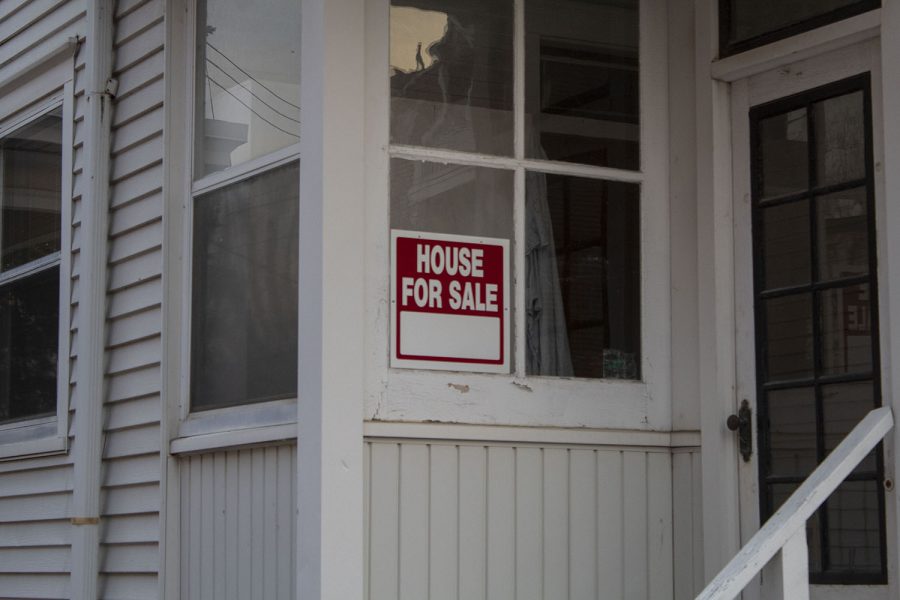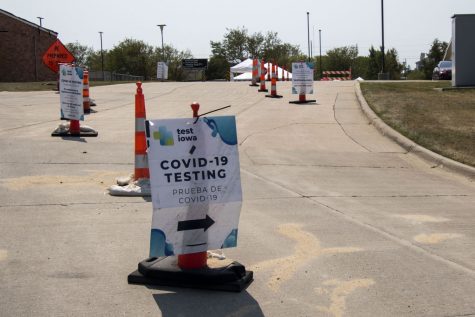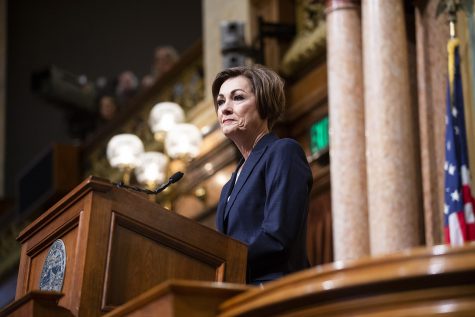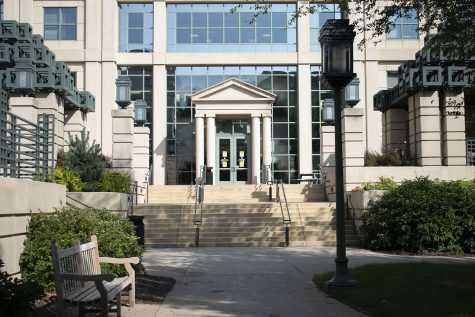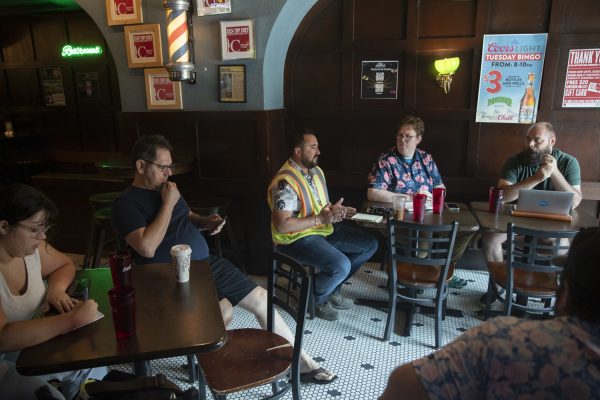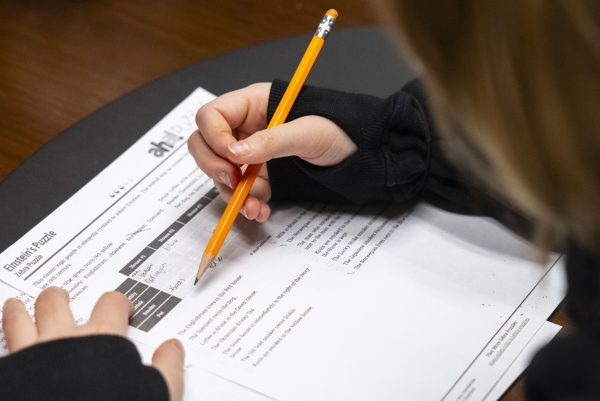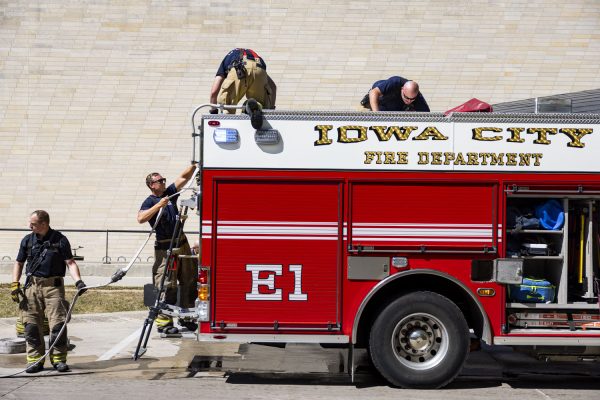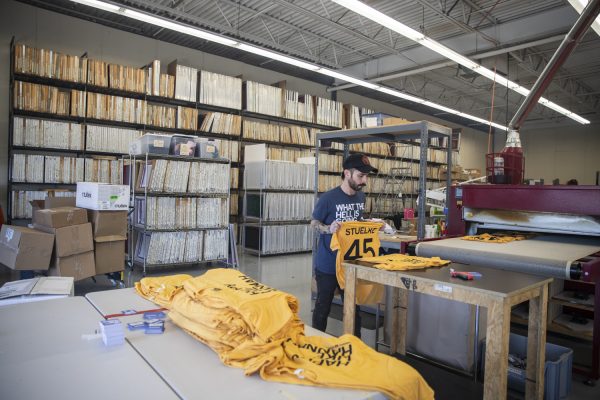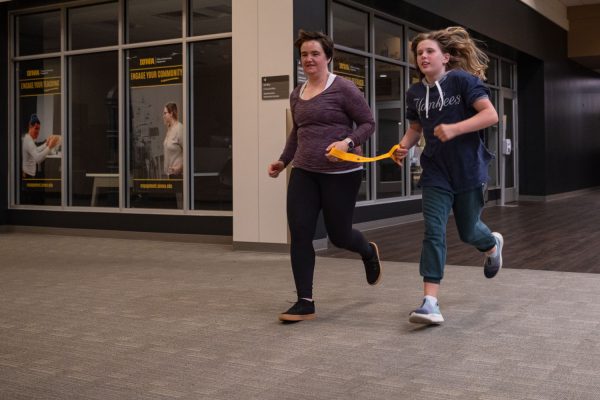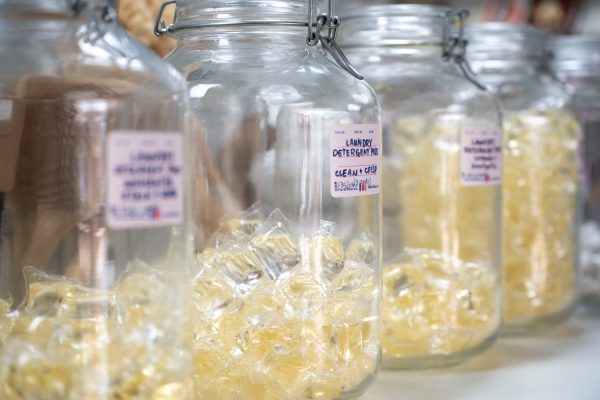Iowa City real estate flourishes amid COVID-19
With interest rates at an all-time low, homeowners in the Iowa City area are choosing to refinance their homes and mortgages, or selling their homes and buying new ones.
A For Sale sign is seen on Tuesday, Nov. 17, 2020. With families wanting larger homes to inhabit while being stuck at home due to COVID-19, real estate companies are doing notably well.
November 20, 2020
With historically low interest rates and an increase in people looking for larger houses and yards while spending more time at home during COVID-19, the real estate market has picked up in recent months, despite the challenges brought by COVID-19.
When COVID-19 first became a problem at a local, state, and federal level, Iowa City Area Association of Realtors President Tracy Adams said this major obstacle caused uncertainty for many different workers in professional fields, including real estate.
With real estate being a commission-based industry where agents earn their pay from various buyers and sellers rather than earning a constant salary, Adams said this requires real estate agents to take risks and expect the unexpected when working with clients and local available inventory.
“I think at first it was a real scare,” Adams said. “Nobody was sure exactly what to do and it doesn’t matter if it’s real estate or any other profession, I think there’s a lot of unknowns coming into this, the spring market of this year.”
He said since March the real estate market has seen an increase in transactions at a national level as well as a local level, the Iowa City area being one.
Adams said because of the low interest rates encouraging more real estate transactions, especially within residential properties, he has seen the average sale price go up 2.3 percent, median sale prices go up 8.5 percent, and there have been 79 more transactions than October 2019.
According to the most recent Freddie Mac survey, released Thursday, mortgage rates hit yet another record low nationwide.
Johnson County Recorder Kim Painter said with her position, she sees all of the real estate transactions that occur across the county, including requests to release and or refinance mortgages, which have noticeably increased over the past year – something Painter credits to the historically low interest rates.
“In our office, we have seen an increase in our numbers of documents overall,” Painter said. “The interest rate is so low, that many people have taken advantage of that to refinance their homes.”
MidWestOne Bank Mortgage Production Manager Travis Eagle said with the current economy and low interest rates, he’s seen an increase of clients looking to reevaluate their mortgages and look for better mortgage terms.
“I think it couldn’t come at a better time,” Eagle said. “With [the interest] rates and with what’s happened in our economy, and obviously what has happened with the pandemic, and rates going down has been ideal for a lot of people because when they refinance typically, they’ll skip a month’s mortgage payment, and even that little reprieve can be helpful for some.”
Eagle said he has seen both home renters and buyers take advantage of the current real estate market, with renters purchasing houses that cost less than their current rental property, or buyers that are looking to upgrade to a bigger home.
“People hear so much about these rates and how impactful they are, and they start looking, and then they start realizing ‘holy cow, I can afford this house for less than I’m renting right now,’” Eagle said. “I think that’s a huge part of what we’re seeing with some of our renters, and then you look at the other end of the spectrum, with some of our more savvy homebuyers that are just looking to potentially upgrade. They might see a smaller house payment on a bigger house than what they’re in now, just because the rates are so low.”
RELATED: Johnson County Board of Supervisors candidates give pitches on steering post-COVID-19 economy
Painter said with the influx of real estate transactions, the county is currently at 60 percent of its total annual revenue projection, which is remarkably high since it is only four months into the fiscal year which began in July. Painter said this has drastically increased the revenue coming into the county, which has helped the local economy.
“October tends to be a month where we start to see real estate cool off a little bit,” Painter said. “We start to see some slowdown in terms of how much revenue we have, how many documents we’re processing, and things held really strong in October, we processed a document load that’s pretty similar to June and July, that are two of our traditional high volume months of the year.”
Adams said an early issue in the current real estate market was creating a process to safely show houses to prospective buyers. With requiring masks, gloves, hand sanitizer, and medical shoe covers, they were able to safely continue this integral part of the home buying experience.
“When it first started, we had issues with people not wanting to show their house,” Adams said. “Due to COVID-19, [families were wanting to] just keep the door shut and keep people out, which makes sense, and keep everything in their own little family bubble, which I get, but it did ease up a little bit, and having the code we put in place [really helped].”
In addition to newly implemented health and safety protocols, Adams said real estate agents were also deemed essential workers within the state of Iowa, which allowed them to continue showing houses and helping community members buy and or sell a house.
Adams said although the condition of the pandemic and economic state within the country remains ever-changing, the real estate market has kept its sense of uncertainty and still requires agents to continuously adjust to the market.
“The national economist states that the rates will stay low, at least for another six months into the next year,” Adams said. “We’ll see what happens, a vaccine for COVID might change things in the near future, but I think we’re kind of still in that unknown charted waters here that we are trying to do business as normal, but it’s always tough to dictate what’s going to happen in the future.”



